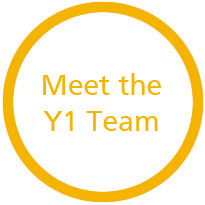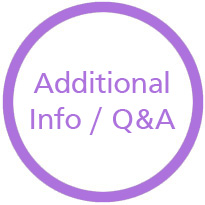STUDENT SKILL DEVELOPMENT
Please review to the advice below to support your child in making a smooth transition to primary school.
Social and Emotional Skills
As children grow they learn how to interact in a range of social situations, developing an understanding of self and others. Another important aspect of this area of growth is increasing independence.
Developing the experiences and skills in the following areas will support children’s transition to primary school:
-
Separates easily from a familiar adult
-
Enjoys playing with other children and usually plays cooperatively
-
Helps clean up when asked
-
Takes turns and shares
-
Can go to the toilet without help
-
Can manage a packed lunch and eat food appropriately
-
Unpacks own bag at school and follows simple routines
-
Is curious and asks questions
Motor Skills
Learning to move is important for children and a significant development. It enables children to make their own choices and learn about and engage with their world. Both gross motor skills and fine motor skills are needed for children to participate in creative activities such as dance, art and handwriting. They are also important for health as children need to move to be active. These skills are needed for self care, like being able to go to the toilet independently, or getting dressed.
Gross Motor Skills
-
Can drop, bounce and catch a ball using both hands
-
Plays with increasing confidence on playground equipment
-
Can run confidently
-
Can balance for a short time on either leg
-
Can attempt large muscle challenges such as swinging on a climbing frame.
Fine-Motor Skills
Language Development and Communication Skills
The language learning process involves listening to and using language in our everyday lives. By building up a range of vocabulary a language learner can communicate needs and wants accurately in different social situations. Language can also be used by learners as a tool to listen, think, discuss and reflect on information, ideas and issues shared with them. The language learner also understands that people can use different languages to communicate and that home languages are valued even when the language of instruction is mainly English.
Developing the experiences and skills in the following areas will support children’s transition to primary school:
-
Can talk and interact with others in unstructured and structured play
-
Can ask for help
-
Can express ideas in a sentence
-
Can retell and respond to a simple story
-
Can name colours and match them correctly
-
Can follow instructions with more than one step (eg. get your stripey folder and put it in your tray)
-
Can share ideas with a small group
-
Can recount a recent experience
-
Understands the sequence of daily events and has some sense of time (e.g. yesterday, today or tomorrow)
-
Understands and uses some positional words (e.g. behind, in front of, under, beside or next to)
Early Mathematical Understanding
As children grow they develop concepts about number, size, position and time. Developing the experiences and skills in the following areas will support children’s transition to primary school:
-
Rote counting to 10 (and possibly beyond)
-
Say the number and touch the corresponding object when counting (one to one correspondence)
-
Can recognize some written numbers
-
Can copy some numbers
-
Can understand some simple concepts eg. Big, small, long, short, heavy, light, wide, narrow etc...
-
Is beginning to recall the sequence for days of the week
-
Can recognise and match some shapes (e.g. Circle, square, triangle or rectangle)
Reading and Writing Skills
The ability to read and write is built on the foundation of the skills described above. Each child develops these skills at a different rate and students entering Year 1 at Glenealy are not expected to be able to do either on day one. Some will be able to do both and for others it will take a little longer. They will get there when they are ready. What we aim to do is to develop a love of, and a curiosity for learning.
Developing the experiences and skills in the following areas will support children’s transition to primary school:
-
Displays established concepts about print e.g. reading a book from left to right
-
Understands that print carries a message
-
Matches the names or sounds to some letters of the alphabet
-
Attempts to write using mark making
-
Recognises own name and writes it without copying






